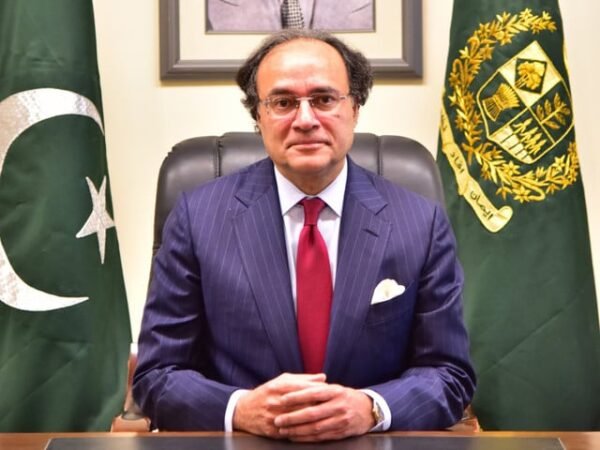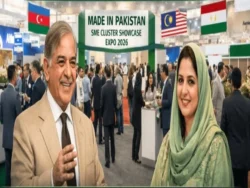ECONOMIC IMPERATIVES FOR NEW GOVERNMENT IN PAKISTAN

Elections serve as a crucial opportunity to reassert the nation’s dedication to human rights and democracy while guaranteeing the inclusion of all individuals in the process of political engagement. Pakistan has achieved a noteworthy milestone in its democratic progress by successfully carrying out parliamentary elections on February 8, 2024. The number of eligible voters had exceeded 128 million, making these elections the greatest in the history of the country. Thus, reasserting the country’s dedication to democracy and human rights.
Before 8 am, voters of various age groups had begun forming lines outside the 90,000 polling stations, displaying enthusiasm to fulfill their civic responsibility. The polling process commenced on time and proceeded smoothly throughout the day. The presence of police and paramilitary personnel had helped to maintain order. Their vigilance helped prevent major incidents of violence, ensuring a peaceful voting experience for citizens.
International observers from the Commonwealth, including Dr. Goodluck Jonathan had expressed satisfaction with the security arrangements at the polling stations. Dr. Jonathan, detailing the team’s visits in Islamabad, had commended the efforts made to create a safe and conducive environment for voters.
Optimal arrangements had been made to ensure that elections were conducted peacefully and smoothly on polling day, allowing all citizens to exercise their democratic right to vote. The success of the elections demonstrated that the caretaker government had fulfilled its duty by running the state’s day-to-day affairs and creating a conducive environment for the elections.
In the current context, Pakistan is confronted with two significant domains of challenges: security and economy. Ensuring the security of the nation demands a concerted and cooperative approach, emphasizing the critical need for joint efforts to protect Pakistan’s territorial integrity and the well-being of its citizens.
Recent statements from the World Bank, Fitch Ratings, and the IMF emphasized the necessity of policy continuity and reform implementation for the country’s economic stability. The incoming government must direct its focus toward further advancing the initiatives undertaken by the interim government in the economic sphere.
The World Bank has also expressed concern that organized and powerful vested interests may incite several potential reversals of crucial policy reforms, thereby exposing Pakistan to “high” macroeconomic risks. Moreover, Fitch has maintained Pakistan’s rating at “CCC+” and expressed concerns that the impediment in implementing structural reforms will lead to economic difficulties.
The continuation of the ongoing economic reforms is not only advisable but indeed indispensable for fostering sustainable economic progress in Pakistan. By diligently pursuing and expanding upon these reformative measures, the nation can bolster its economic resilience and lay a solid foundation for enduring prosperity.
The interim government’s commendable endeavors in energy pricing changes, fiscal consolidation, and black market suppression have been recognized by the world community. These policies have successfully diminished the discrepancy between parallel and interbank exchange rates, thus enabling a larger influx of foreign exchange into the banking system.
This acknowledgment demonstrates the international community’s confidence in the effective measures carried out by the interim government, highlighting the importance for the future government to maintain and support these policies.
The international community’s confidence is essential, as the World Bank has expressed its preparedness to provide more support in conjunction with the IMF through another program for loans over a medium-term period. If the present reform initiatives continue to be successful, the newly elected government will endorse this program for more extensive and comprehensive reforms. Furthermore, the IMF Executive Board is set to analyze Pakistan’s preliminary evaluation on January 11, which will result in the approval of a crucial $700 million tranche. Fitch also emphasized the importance of swiftly initiating negotiations for an additional IMF program once the Stand-By Arrangement (SBA) finishes in March 2024.
The international community has admired the approval of 28 high-value investment projects, amounting to billions of dollars, by the SIFC council, which consists of representatives from both civilian and military stakeholders. Pakistan’s commitment to fostering robust economic alliances and seizing opportunities for advancement is evident in Saudi Arabia’s involvement in Pakistan’s oil and gas giant, Aramco, and the collaboration between the UAE and Pakistan under the Comprehensive Economic Partnership Act.
In light of the subsequent IMF program, the World Bank has provided insight into the “broader and deeper reforms” that the nation will be required to implement in the future years. Further substantial and profound reforms will be required in the intermediate future to facilitate fiscal consolidation, bolster confidence, and increase investment.
The international community acknowledges that without continuous economic changes, private external inflows will be limited, and import restrictions would probably be required to maintain foreign exchange reserves in response to accumulated demand. These implications will significantly harm economic activity and result in long-lasting economic damage. Foreign investment will be limited, and the government will remain unable to secure external commercial borrowing.
Hence, the reformation of the Pakistani economy requires the preservation of these consistent policies. If the subsequent administration effectively implements and maintains these policies, the nation will persist in prospering. The concern over a potential decrease in the worldwide ratings underscores the necessity for the recently established government to maintain continuing reforms and align its policies with its current record of accomplishments.





